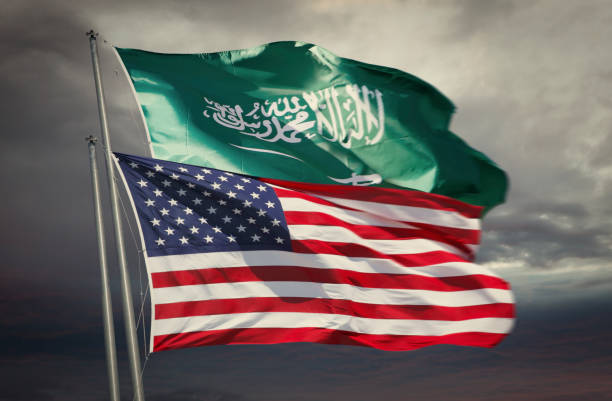In a strategic move to break China’s stranglehold on critical minerals, US rare earth producer MP Materials has announced a three-way partnership with the US Department of War and Saudi Arabia’s state mining company to build a processing facility in the Gulf kingdom. The deal underscores how rare earth supply chains have become a national security priority amid rising geopolitical tensions.
The Unlikely Alliance Taking Shape
MP Materials revealed on Wednesday it has entered a partnership with the US Department of War and Maaden, Saudi Arabia’s state-backed mining company. The trio plans to develop a rare earths refinery that will process raw materials sourced from Saudi Arabia and other regions, supplying both US and Saudi manufacturing and defence industries.
Under the agreement, MP Materials and the US government combined will hold up to 49% of the joint venture, while Maaden will maintain controlling ownership of at least 51%. Notably, the Department of War, not MP Materials, will provide the US side’s financing, though specific dollar amounts weren’t disclosed.
The partnership was announced during a US-Saudi business forum in Washington as President Trump hosted Saudi Crown Prince Mohammed bin Salman with what observers described as a “lavish” welcome. The rare earths deal is among several agreements being finalised between the two countries this week.
Why Rare Earths Matter More Than Ever
Rare earth elements are a group of 17 metals crucial for producing permanent magnets used across defence, energy, and technology sectors. These materials are essential components in everything from fighter jet engines and missile guidance systems to wind turbines, electric vehicle motors, and smartphones.
The problem? China dominates global rare earth production and processing, controlling an estimated 70-90% of supply depending on the specific element. This monopoly gives Beijing significant leverage over industries and militaries worldwide—leverage it has increasingly been willing to use.
This year, China imposed a series of export restrictions on rare earth materials, sending Western manufacturers and defence contractors scrambling for alternative sources. The move highlighted the vulnerability of supply chains that Western nations had largely ignored for decades while China quietly consolidated control.
Light vs. Heavy: Understanding the Supply Challenge
Rare earths are typically divided into two categories: light and heavy. Both are controlled by China, but heavy rare earths are especially difficult to source outside Chinese supply chains.
MP Materials’ mine in Nevada primarily produces light rare earths. The company is currently developing a heavy rare earth separation facility in the US that will process material from its own mine and third-party sources—an effort to build domestic capacity for these critical elements.
The new Saudi facility is expected to produce both light and heavy rare earths, potentially providing Western industries with a more reliable alternative to Chinese supply.
An Unprecedented Government Stake
The partnership builds on an unusual arrangement announced earlier this year when the US government took an equity stake in Nevada-based MP Materials—a rare instance of direct government ownership in a private mining company. Under that deal, Washington also guaranteed a minimum price for some of MP Materials’ production, essentially providing a financial backstop to ensure the company remains viable even if rare earth prices collapse.
Industry observers were surprised by the government’s direct involvement, which signals how seriously Washington views rare earth supply security. The willingness to invest taxpayer money directly into mining operations represents a significant departure from typical US industrial policy.
Having the Department of War finance the Saudi facility takes this approach even further, effectively making rare earth processing a military procurement issue rather than a purely commercial venture.
Saudi Arabia’s Mining Ambitions
For Saudi Arabia, the partnership aligns with Crown Prince Mohammed bin Salman’s Vision 2030 initiative to diversify the kingdom’s economy beyond oil exports. Mining has been identified as a key growth sector, with Saudi authorities estimating the country’s untapped mineral resources could be worth approximately $2.5 trillion.
Maaden, which is majority-owned by Saudi Arabia’s sovereign wealth fund, told the Financial Times in September it is pursuing an aggressive expansion strategy to develop these resources. The company is also exploring international opportunities through its investment arm, Manara.
Saudi officials hope that growth in mining will help supply raw materials for other industries they’re trying to build domestically, including electric vehicle manufacturing and advanced industrial production. Rare earths would be crucial for both sectors.
Geopolitical Chess on the Periodic Table
The deal represents a fascinating intersection of national security, industrial policy, and international diplomacy. The US gets access to rare earth processing capacity outside China’s reach and strengthens its defence relationship with Saudi Arabia. The Saudis gain advanced processing technology and expertise while building an industry that could become economically significant. MP Materials expands its operations and secures government backing.
China, meanwhile, faces another challenge to its rare earth monopoly—though it will take years before this facility significantly impacts Beijing’s market dominance.
MP Materials CEO James Litinsky framed the partnership in strategic terms: “By combining MP’s technical expertise with the strategic vision of the US Department of War and Maaden’s capabilities and scale, the pieces are in place to fundamentally strengthen and diversify the supply chain.”


